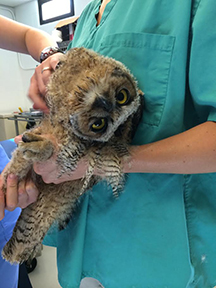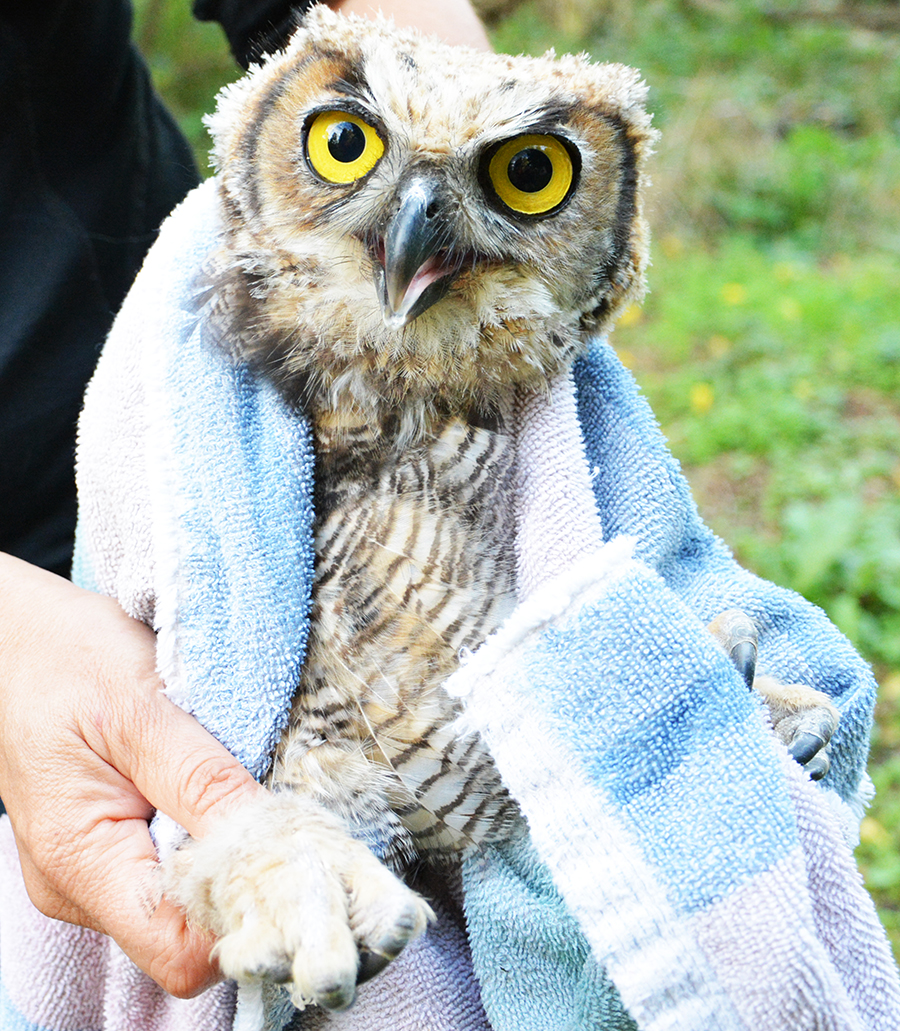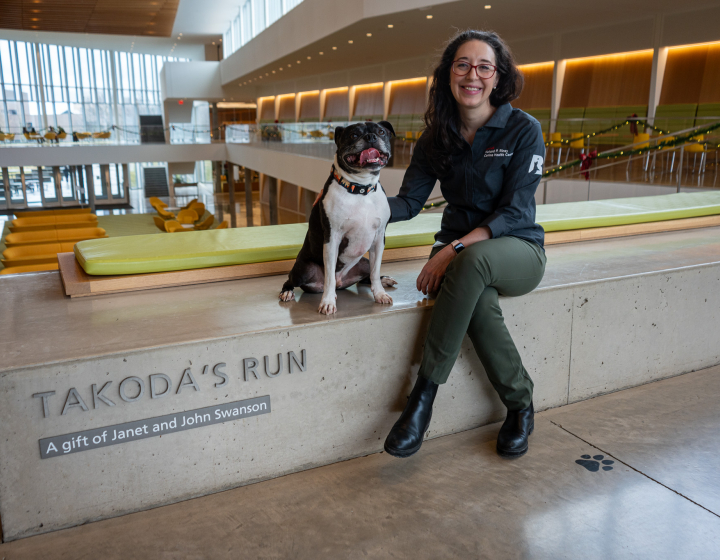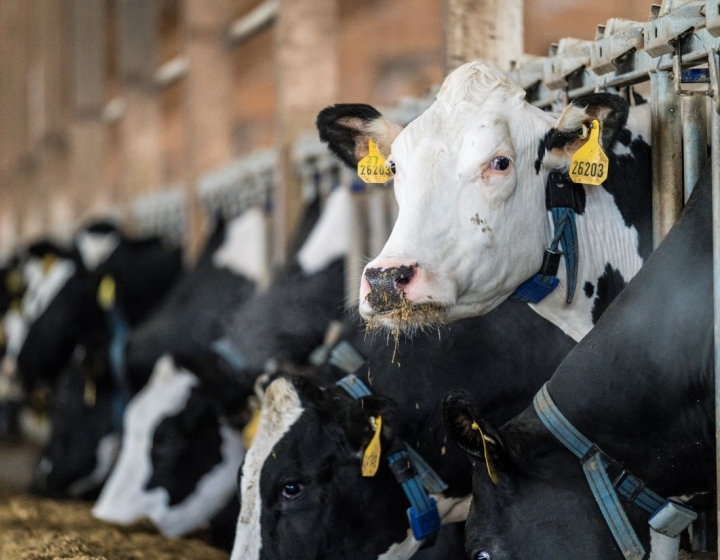An Owl's Tale: Rescued, recovered, released

The patient was found in late July, in a backyard in Lansing, NY. He was in bad shape: thin body condition, his head tilted almost 180 degrees over one shoulder. His rescuers estimated his age at about five months.
The young Great Horned Owl was brought to the Janet L. Swanson Wildlife Health Center at the Cornell College of Veterinary Medicine, in Ithaca, NY. The staff provided supportive care, including fluids, pain medication, nutrition, antibiotics, and anti-fungal medication.

The patient made a speedy recovery. His headset straightened. After his medical condition was stabilized at the Wildlife Health Center, the bird was transferred to a rehabilitator in Syracuse for convalescence. There he slowly recovered. As the head tilt resolved, he started fly and soon after was able to catch live prey.
On a late-September afternoon Alice VanDeMark, a veterinary technician from the Swanson Center, drove the owl back to the location where he was found. “As long as it is a suitable environment with plenty of food and shelter, as in this case, it is advisable to release a young owl back to a familiar area giving him the best potential to thrive,” explained VanDeMark.
The patient did not seem particularly grateful for all those weeks of good care. With the outraged expression customary of owls, he glared at VanDeMark as she carried him to the release site and set him gently on the grass. Once free he sailed away without a backward glance, healthy once again and ready for his next adventure.




